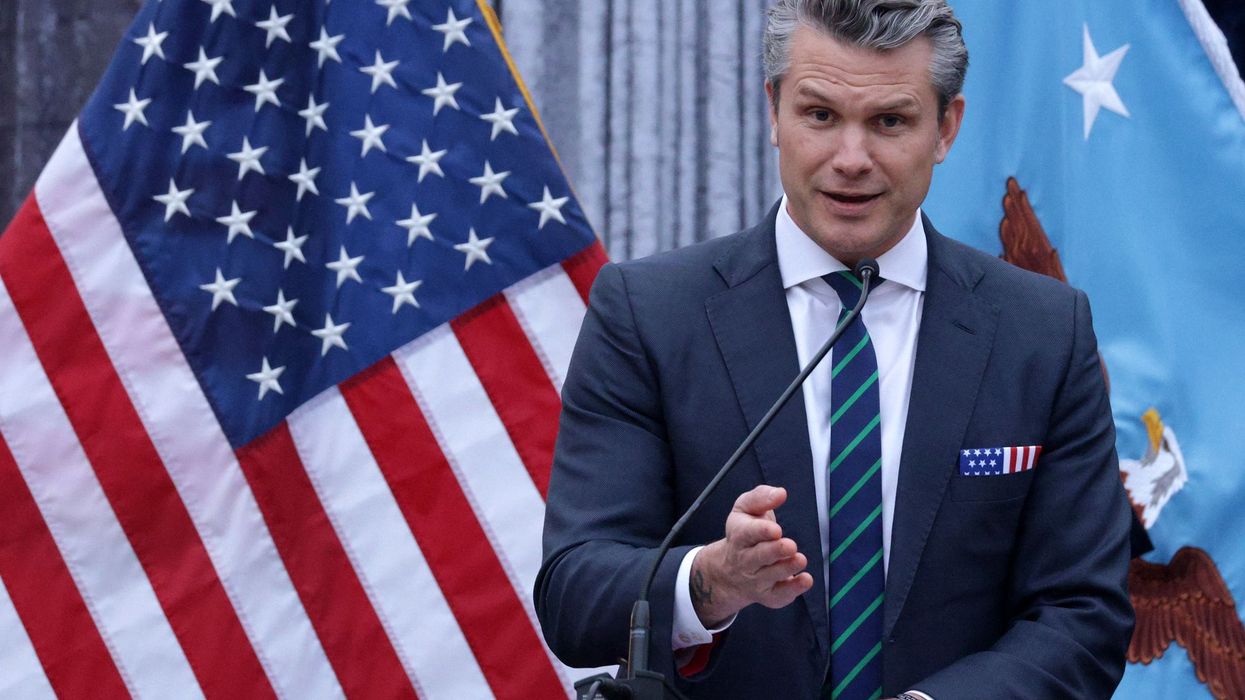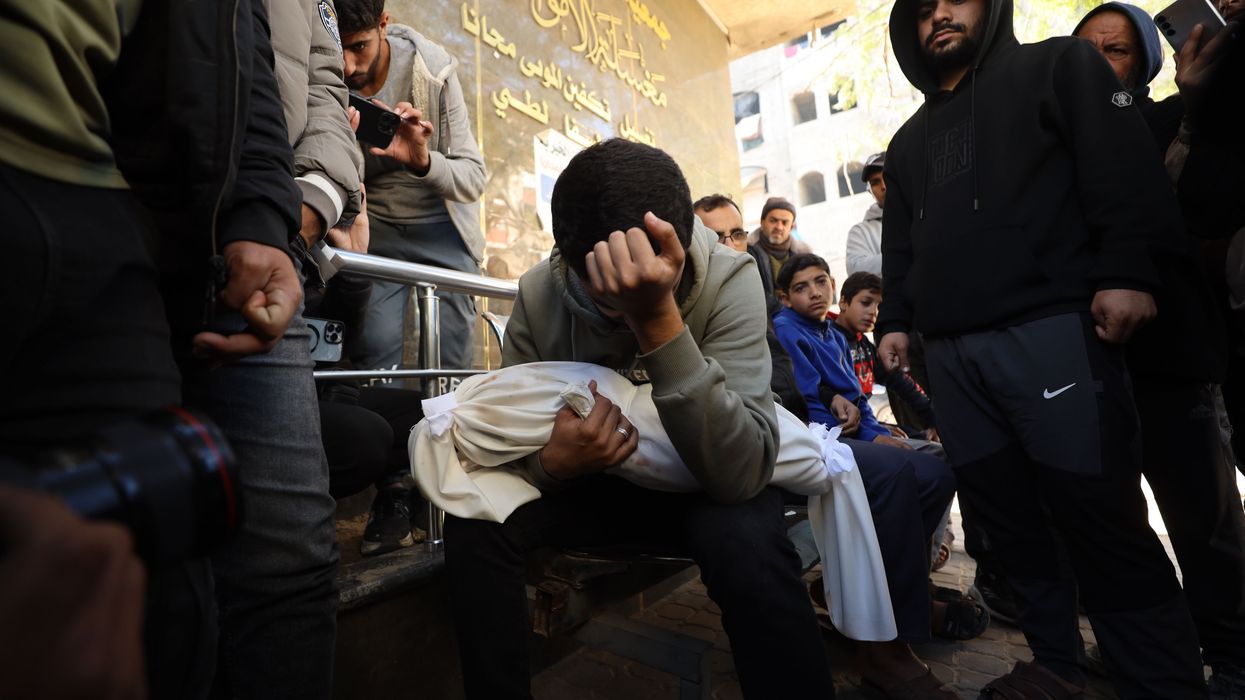October, 29 2009, 01:13pm EDT

President Signs Law Giving Defense Department Authority to Exempt Photos From Freedom of Information Act
ACLU Renews Call for Secretary Gates Not to Block Release of Torture Photos
WASHINGTON
President
Obama today signed into law a Homeland Security appropriations bill
that grants the Department of Defense (DOD) the authority to continue
suppressing photos of prisoner abuse. The amendment, which would allow
the DOD to exempt photos from the Freedom Of Information Act (FOIA), is
aimed at photos ordered released by a federal appeals court as part of
an American Civil Liberties Union FOIA lawsuit for photos and other
records related to detainee abuse in U.S. custody overseas, although it
would apply to other photos in government custody as well. Earlier this
month, the ACLU sent a letter to Secretary Robert Gates urging him not
to exercise the authority to suppress the photos in their case, stating
that the photos "are of critical relevance to an ongoing national
debate about accountability."
"We are disappointed that the
president has signed a law giving the Defense Department the authority
to hide evidence of its own misconduct, and we hope the defense
secretary will not take advantage of that authority by suppressing
photos related to the abuse of prisoners," said Jameel Jaffer, Director
of the ACLU National Security Project. "Secretary Gates should be
guided by the importance of transparency to the democratic process, the
extraordinary importance of these photos to the ongoing debate about
the treatment of prisoners and the likelihood that the suppression of
these photos would ultimately be far more damaging to national security
than their disclosure. The last administration's decision to endorse
torture undermined the United States' moral authority and compromised
its security. A failure to fully confront the abuses of the last
administration will only compound these harms."
Another provision contained in the new law allows the transfer of detainees from Guantanamo Bay to the U.S. for prosecution.
"This law allows the administration
to transfer prisoners to the U.S. for criminal trials in the federal
courts, and the administration should now do exactly that," said
Jaffer. "The military commissions at Guantanamo are not just unlawful
but unnecessary. The federal courts are fully capable of prosecuting
terrorism suspects while protecting both national security interests
and fundamental due process. It's time to shut down Guantanamo,
transfer the military commissions trials to federal courts that uphold
the rule of law, and transfer prisoners whom the administration does
not intend to charge to countries where they won't be in danger of
being tortured. Indefinite detention without charge or trial undermines
the most basic values of justice and fairness."
The full text of the ACLU's letter to Secretary of Defense Gates is below and available online at: www.aclu.org/safefree/torture/41309res20091020.html
More information about the ACLU's FOIA litigation is at: www.aclu.org/accountability
The American Civil Liberties Union was founded in 1920 and is our nation's guardian of liberty. The ACLU works in the courts, legislatures and communities to defend and preserve the individual rights and liberties guaranteed to all people in this country by the Constitution and laws of the United States.
(212) 549-2666LATEST NEWS
War Crime, Murder, or Both? Dems Demand DOJ Probe Into Hegseth Order to Kill Shipwrecked Sailors
"Giving a general order to kill any survivors constitutes a war crime," wrote Reps. Jamie Raskin and Ted Lieu. "Outside of war, the killing of unarmed, helpless men clinging to wreckage in open water is simply murder."
Dec 22, 2025
Making clear that the Trump administration's "entire Caribbean operation," which has killed more than 100 people in boats that the US military has bombed, "appears to be unlawful," two Democrats on a powerful House committee on Monday called on the Department of Justice to investigate one particular attack that's garnered accusations of a war crime—or murder.
House Judiciary Committee Ranking Member Jamie Raskin (D-Md.) and Rep. Ted Lieu (D-Calif.) wrote to Attorney General Pam Bondi four weeks after it was reported that in the military's first strike on a boat on September 2, Defense Secretary Pete Hegseth ordered service members to "kill everybody"—prompting a second "double-tap" strike to kill two survivors of the initial blast.
A retired general, United Nations experts, and former top military legal advisers are among those who have warned that Hegseth and the service members directly involved in the strike—as well as the other attacks on more than two dozen boats in the Caribbean and eastern Pacific—may be liable for war crimes or murder.
Raskin and Lieu raised that concern directly to Bondi, writing: "Deliberately targeting incapacitated individuals constitutes a clear violation of the Department of Defense’s Law of War Manual, which expressly forbids attacks on persons rendered helpless by shipwreck. Such conduct would trigger criminal liability under the War Crimes Act if the administration claims it is engaged in armed conflict, or under the federal murder statute if no such conflict exists."
The administration has insisted it is attacking the boats as part of an effort to stop drug trafficking out of Venezuela, and has claimed the US is in an armed conflict with drug cartels there, though international and domestic intelligence agencies have not identified the country as a significant source any drugs that flow into the US. As President Donald Trump has ordered the boat strikes, the administration has also been escalating tensions with Venezuela by seizing oil tankers, claiming to close its airspace, and demanding that President Nicolás Maduro leave power.
Critics from both sides of the aisle in Congress have questioned the claim that the bombed boats were a threat to the US, and Raskin and Lieu noted that the vessel attacked on September 2 in particular appeared to pose no threat, as it was apparently headed to Suriname, "not the United States, at the time it was destroyed."
"Deliberately targeting incapacitated individuals constitutes a clear violation of the Department of Defense’s Law of War Manual, which expressly forbids attacks on persons rendered helpless by shipwreck."
"Congress has never authorized military force against Venezuela; a boat moving towards Suriname does not pose a clear and present danger to the United States; and the classified legal memoranda the Trump administration has offered us to justify the attacks are entirely unpersuasive," wrote the lawmakers.
Raskin and Lieu emphasized that Hegseth's explanations of the September 2 strike in particular have been "shifting and contradictory."
"Secretary Hegseth has variously claimed that he missed the details of the September 2 strike because of the 'fog of war,' and that he actually left the room before any explicit order was given to kill the survivors," they wrote. "Later reporting suggests that he gave a general order to kill all passengers aboard ahead of the strike but delegated the specific order to kill survivors to a subordinate."
The facts that are known about the strike, as well as Hegseth's muddled claims, warrant a DOJ investigation, the Democrats suggested.
"Giving a general order to kill any survivors constitutes a war crime," they wrote. "Similarly, carrying out such an order also constitutes a war crime, and the Manual for Courts-Martial explicitly provides that 'acting pursuant to orders' is no defense 'if the accused knew the orders to be unlawful.' Outside of war, the killing of unarmed, helpless men clinging to wreckage in open water is simply murder. The federal criminal code makes it a felony to commit murder within the 'special maritime and territorial jurisdiction of the United States,' which is defined to include the 'high seas.' It is also a federal crime to conspire to commit murder."
Raskin and Lieu also emphasized that two memos from the DOJ's Office of Legal Counsel (OLC) "do not—and cannot—provide any legal protection for the secretary’s conduct."
A 2010 OLC memo said the federal murder statute does not apply "when the target of a military strike is an enemy combatant in a congressionally authorized armed conflict," they noted. "In stark contrast, in the case of the Venezuelan boats, Congress has not authorized military force of any kind."
A new classified memo also suggested that “personnel taking part in military strikes on alleged drug trafficking boats in Latin America would not be exposed to future prosecution," and claimed that "the president’s inherent constitutional authority in an undeclared 'armed conflict' will shield the entire chain of command from criminal liability."
The Democrats wrote, "Experts in criminal law, constitutional law, and the law of armed conflict find this sweeping, unsubstantiated claim implausible, at best."
They also noted that even the author of the George W. Bush administration's infamous "Torture Memo," conservative legal scholar John Woo, has said Hegseth's order on September 2 was clearly against the law.
"Attorney General Bondi, even those who condoned and defended torture in the name of America are saying that the Trump administration has violated both federal law and the law of war," wrote Raskin and Lieu. "We urge you to do your duty as this country’s chief law enforcement officer to investigate the secretary’s apparent and serious violations of federal criminal law."
Keep ReadingShow Less
'Exactly What We Don't Need': Trump Bashed for Naming New Class of Warships After Himself
The reported move came just days after Trump added his name to the John F. Kennedy Center for the Performing Arts.
Dec 22, 2025
The Wall Street Journal on Monday reported that President Donald Trump will announce that the US Navy is building a new class of warship that will be named after him.
According to the Journal, the president is expected to reveal that the Navy is building "a new 'Trump-class' battleship, which will become the centerpiece of the president’s vision for a new 'Golden Fleet.'"
The Journal noted that Trump in the past has complained about the aesthetic look of US warships, which he has described as "terrible-looking." Sources told the Journal that the new ship will "be an upgrade to the Navy’s Arleigh Burke-class destroyers, which are the workhorse of the current fleet and which Trump has compared unfavorably to rival navies."
Mark Montgomery, a retired rear admiral who currently serves as a senior director at the Foundation for Defense of Democracies, dumped on Trump's "Golden Fleet" plans in an interview with the Journal, describing the ships as "exactly what we don’t need" and accusing Trump's underlings of being "focused on the president’s visual that a battleship is a cool-looking ship."
New York Times columnist Jamelle Bouie echoed Montgomery's criticisms of the project, which he speculated was being done for entirely frivolous reasons.
"This just has me thinking about how so much of this government and the movement around it is purely a matter of aesthetics," he wrote on Bluesky. "Is there a strategic reason for produce a new warship? Maybe. But my hunch is that this is happening because the president thinks it will look cool."
CNBC's Carl Quintanilla observed that the Trump-branded warships were just the latest thing that the president has slapped his name on, as in recent months he has also announced the creation of the "TrumpRx" prescription drug website and the "Trump Gold Card," while also adding his name to the John F. Kennedy Center for the Performing Arts.
Democratic political strategist Jim Manley reacted with horror to Trump naming American military equipment after himself.
"My God," he wrote on Bluesky. "Well, that seals the deal. If House and Senate appropriators agree to this—burn it all down."
Keep ReadingShow Less
House Dems Call Out Israel's 'Near-Daily Violations' of Gaza Ceasefire
In a letter demanding action from the White House, US lawmakers noted "continued bombardment against civilians, destruction of property, and insufficient delivery of humanitarian aid."
Dec 22, 2025
Dozens of congressional Democrats wrote to the White House on Monday to highlight "the long-standing relationship between the US and Israel," and urge President Donald Trump "to exert maximum diplomatic pressure" to end the Israeli government's violations of a ceasefire deal with Hamas that took effect in the Gaza Strip on October 10.
As of Monday, Gaza's Government Media Office accused Israeli forces of 875 ceasefire violations, which have killed 411 Palestinians and injured 1,112 others. The official death toll in the strip since October 7, 2023 is at least 70,937 Palestinians, with another 171,192 wounded, though global experts warn the true figures are likely far higher.
In the letter, Democratic Reps. Mark Pocan (Wis.) and Madeleine Dean (Pa.), along with 45 of their House colleagues, pointed to Israel's "continued bombardment against civilians, destruction of property, and insufficient delivery of humanitarian aid."
"It's imperative that we hold the Israeli government accountable for its actions," they wrote. "It's also vital that we hold Hamas accountable for the violent crackdown it has pursued against any potential competitors in Gaza in violation of its commitment as part of the ceasefire to step back from governing the Gaza Strip."
Under both the Biden and Trump administrations, the US has given Israel more than $20 billion in military aid since it began retaliating for Hamas' attack over two years ago. The lawmakers on Monday called for Trump to take whatever action needed, "including leveraging US assistance, to ensure full compliance with the terms of the framework and an end to the continued acts of violence and destruction that undermine this fragile agreement and threaten the prospect of lasting peace in the region."
"We recognize that both Hamas and Israel have committed ceasefire violations... However, we are deeply concerned that the Israeli response to violations by Hamas have been severe and disproportionate, resulting in massive loss of life," they wrote. For example, "on November 29, the Israeli military killed two brothers, aged 8 and 10, in a drone strike after they crossed into an Israel-controlled area of Gaza, referring to the children as 'suspects' in a statement that failed to acknowledge they were children."
In addition to "attacks by air, artillery, and direct shootings," the House Democrats highlighted, "since the beginning of the ceasefire, Israeli forces have reportedly destroyed more than 1,500 buildings, many of which did not appear to be damaged prior to being destroyed... These include homes, entire neighborhoods, gardens, and small orchards."
"We also are gravely concerned that the Israeli government is not allowing sufficient levels of humanitarian aid to enter Gaza. The ceasefire agreement calls for 600 trucks per day to enter Gaza, but recent reports indicate that far fewer trucks are actually getting through," they continued. While the global initiative that tracks hunger crises concluded last week that Gaza is no longer facing "famine," it also stressed that "the situation remains critical" for 1.6 million Palestinians.
The mass starvation of Palestinians in Gaza has been a factor in the ongoing genocide case against Israel at the International Court of Justice as well as the International Criminal Court's arrest warrants for Israeli Prime Minister Benjamin Netanyahu and former Israeli Defense Minister Yoav Gallant, which the Trump administration has retaliated against with sanctions targeting ICC judges.
"Mr. President, this ceasefire agreement is supposed to represent an opportunity for permanent, lasting peace in the region," the Democrats said Monday. "While the agreement is not perfect, and the proposed peace plan faces many obstacles, we are hopeful that this moment is one that can be met with the conviction needed to end the cycle of bloodshed that has plagued the region for so long."
"Unfortunately, the near-daily violations of the ceasefire threaten to plunge the region back into full-scale war," they warned. "It is imperative that your administration exerts maximum diplomatic pressure on the Israeli government, including by leveraging US assistance, to bring an end to the near-daily attacks on civilians, including children, destruction of civilian property, and insufficient delivery of desperately needed humanitarian aid."
Keep ReadingShow Less
Most Popular


